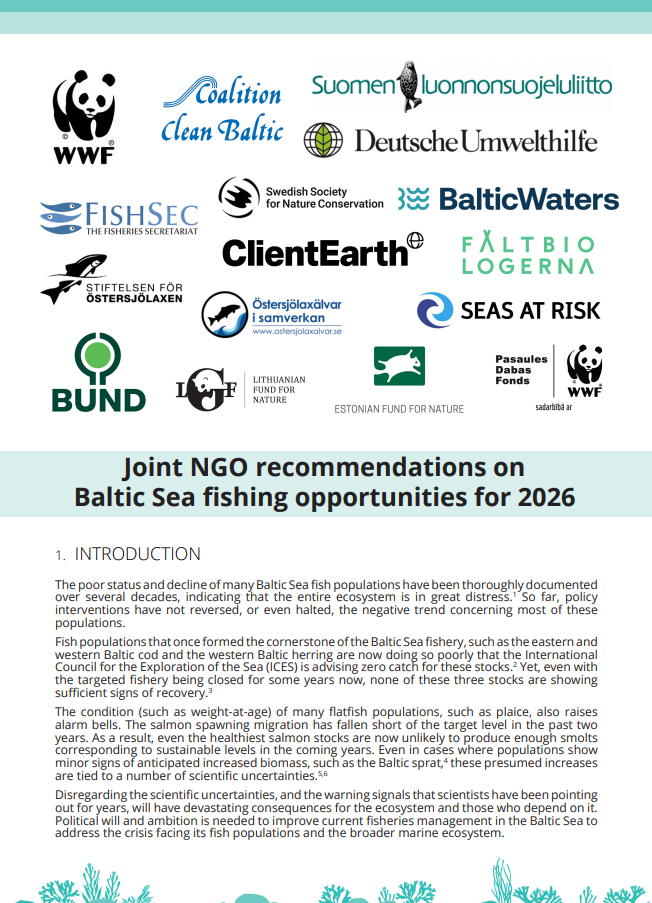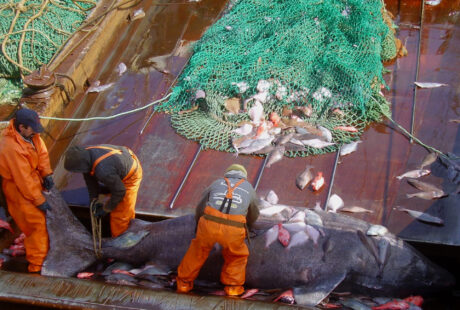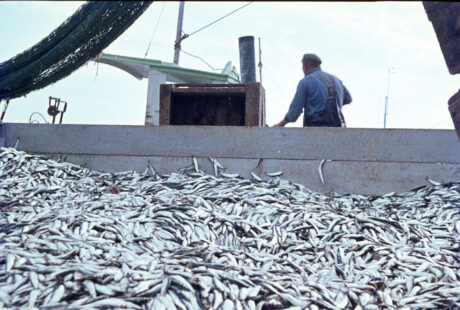The poor status and decline of many Baltic Sea fish populations have been thoroughly documented over several decades, indicating that the entire ecosystem is in great distress. So far, policy interventions have not reversed, or even halted, the negative trend concerning most of these populations.
Fish populations that once formed the cornerstone of the Baltic Sea fishery, such as the eastern and western Baltic cod and the western Baltic herring are now doing so poorly that the International Council for the Exploration of the Sea (ICES) is advising zero catch for these stocks. Yet, even with the targeted fishery being closed for some years now, none of these three stocks are showing sufficient signs of recovery.
Seas At Risk, together with other marine NGOs, presents joint recommendations regarding fishing opportunities for 2026, prioritising long-term ecosystem health and sustainable fisheries management over short-term economic interests. The recommendations are based on the ICES advice, the requirements of the Common Fisheries Policy and the Baltic Multiannual Plan to apply the precautionary approach and implement an ecosystem-based approach to fisheries management, and the objective of achieving Good Environmental Status under the Marine Strategy Framework Directive.

Posted on: 17 June 2025

